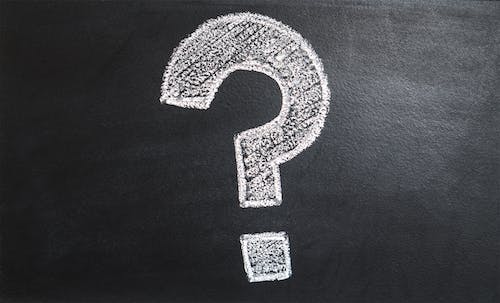Higher order questions can be classified into three main categories: analysis, synthesis, and evaluation. In this detailed blog post, we will be exploring each of these categories and provide examples of Higher order questions for high school students that high school teachers can use to engage their students in critical thinking. Let’s jump In.
>> See This Suggestion: How to get students to ask higher order questions [10 Ways]
Analysis
Analysis is the process of breaking down complex information into smaller parts to understand its structure, function, and relationships. Analysis questions require students to examine data, concepts, and ideas in detail and identify patterns and relationships among them.
Example of analysis Higher order questions for high school students:
- What is the main idea of this passage, and how is it supported by the details?
- What is the difference between correlation and causation, and why is it important to understand this difference?
- How does the author use language and imagery to convey a specific mood or tone in this poem?
- What is the underlying theme of this novel, and how do the characters and events contribute to it?
- How does this experiment demonstrate the scientific method, and what are the implications of its findings?
>> Another Suggestion: 10 Best Activities to encourage asking questions Among Student
Synthesis
Synthesis is the process of combining different parts or elements to create a new whole. Synthesis questions require students to use their knowledge and understanding of concepts to create something new, such as a solution to a problem, an argument, or a design.
Example of synthesis Higher order questions for high school students:
- How can we use the principles of physics to design a more efficient solar panel?
- What is the most effective way to reduce plastic waste in our school, and how can we implement this solution?
- How can we apply the principles of democracy to resolve a conflict in our community?
- How can we use our understanding of the human brain to design more effective learning strategies for students?
- How can we combine different art forms, such as music and visual art, to create a multimedia performance that conveys a specific message or emotion?
Evaluation
Evaluation is the process of making judgments about the quality, value, or effectiveness of something based on specific criteria. Evaluation questions require students to assess and analyze information to make informed judgments or recommendations.
Example of evaluation questions for high school students:
- How effective is this policy in addressing the issue it was designed to solve, and what are its strengths and weaknesses?
- What are the ethical implications of this decision, and how can we weigh the different factors to make a fair and just judgment?
- How well does this scientific study support its claims, and what are the potential biases or limitations in its methodology?
- What is the impact of this historical event on society, and how does it shape our understanding of the present?
- How can we assess the effectiveness of a social media campaign in raising awareness about an issue, and what metrics should we use to measure its success?
Benefits of Higher order questions for high school students
Higher order questions have several benefits for high school students. First, they encourage students to think critically and creatively, which are essential skills for success in college and the workforce. Second, they help students develop a deeper understanding of the concepts they are learning by challenging them to analyze, synthesize, and evaluate information. Third, they provide opportunities for students to express their own ideas and opinions and develop their communication and argumentation skills.
Also, higher order questions also promote engagement and motivation among students. When students are challenged to think deeply about a topic and make connections between different ideas, they are more likely to be interested and invested in the material. This can lead to increased participation in class discussions and a greater willingness to explore new ideas.
Higher order questions promote a more inclusive and diverse classroom environment. By encouraging students to share their own perspectives and ideas, teachers can create a classroom culture that values and respects diversity. This can also help to break down stereotypes and biases and promote understanding and empathy among students.
Tips for Implementing Higher Order Questions in the Classroom
Implementing Higher order questions for high school students in the classroom can be challenging, but there are several strategies that teachers can use to encourage critical thinking and engagement among their students:
- Start with simple questions and gradually increase complexity: Beginning with simple questions that require recall and comprehension can help students build confidence and develop foundational knowledge before moving on to more complex analysis, synthesis, and evaluation questions.
- Provide opportunities for discussion and collaboration: Encouraging students to work together and share their ideas can promote critical thinking and help students develop their communication and argumentation skills.
- Use a variety of questioning techniques: Using a variety of questioning techniques, such as Socratic questioning, open-ended questions, and hypothetical scenarios, can help students develop a deeper understanding of the material and promote engagement and participation.
- Provide feedback and guidance: Providing feedback and guidance to students can help them understand their strengths and weaknesses and improve their critical thinking skills over time.
- Be flexible and adaptable: Being flexible and adaptable in the classroom can help teachers respond to the needs and interests of their students and create a more inclusive and engaging learning environment.
Conclusion On Higher order questions for high school students
Higher order questions are important for high school students because they challenge their thinking skills and help them develop a deeper understanding of the concepts they are learning. Analysis, synthesis, and evaluation questions can be used to promote critical thinking, engagement, and motivation among students.
Implementing higher order questions in the classroom can be challenging, but by using a variety of questioning techniques, providing opportunities for discussion and collaboration, and being flexible and adaptable, teachers can create a classroom culture that values and promotes critical thinking and engagement among all students.






